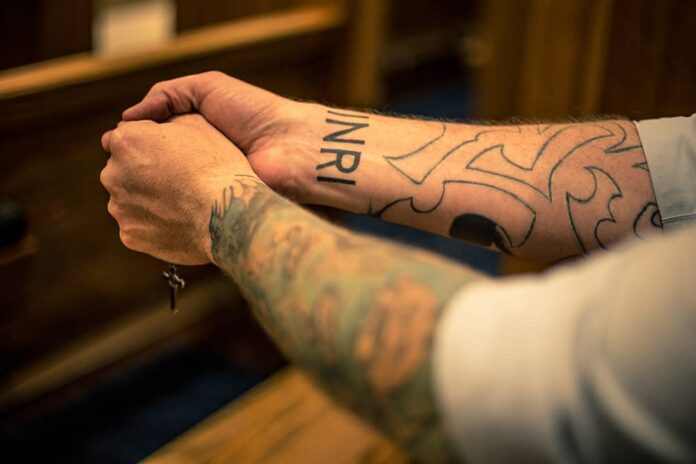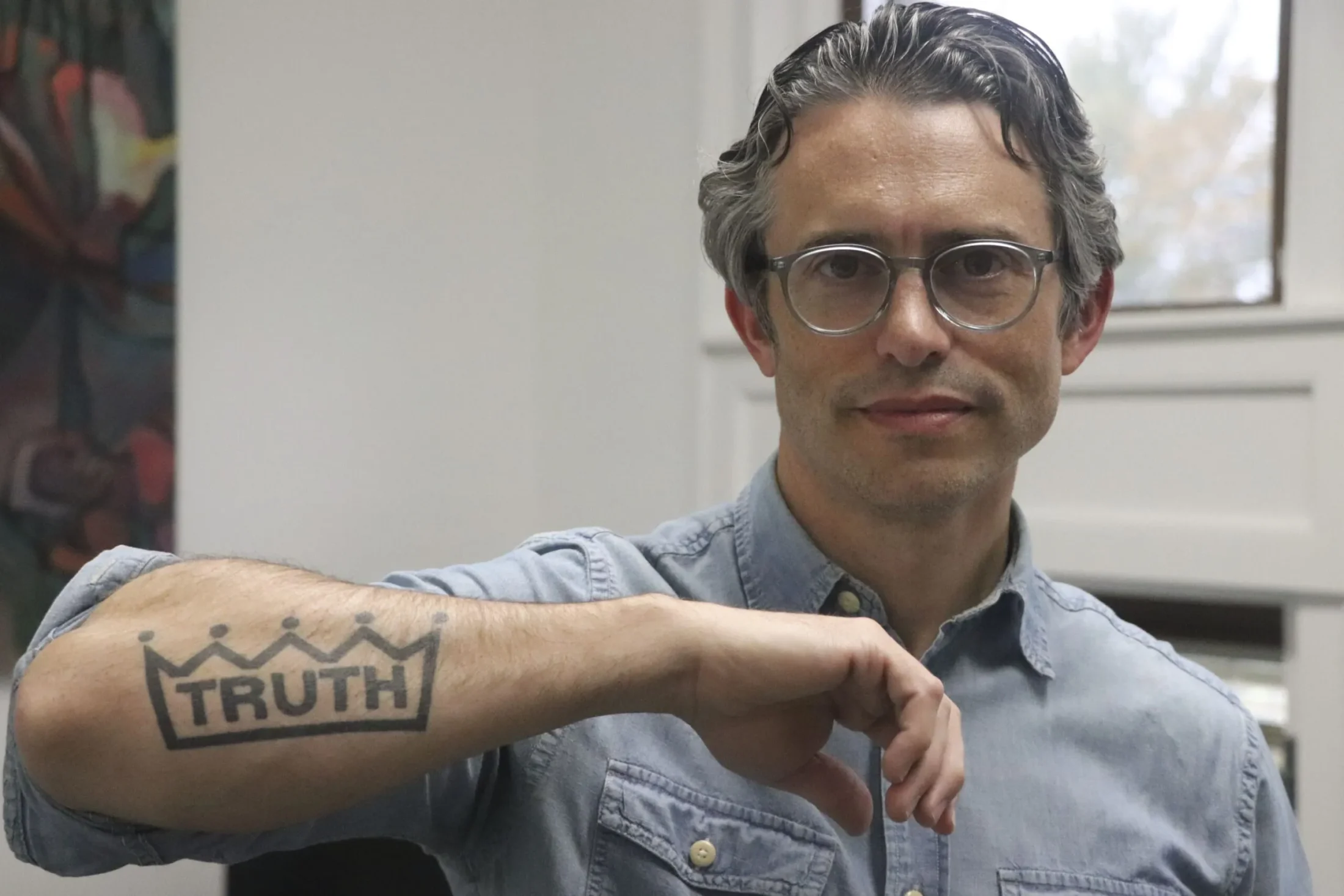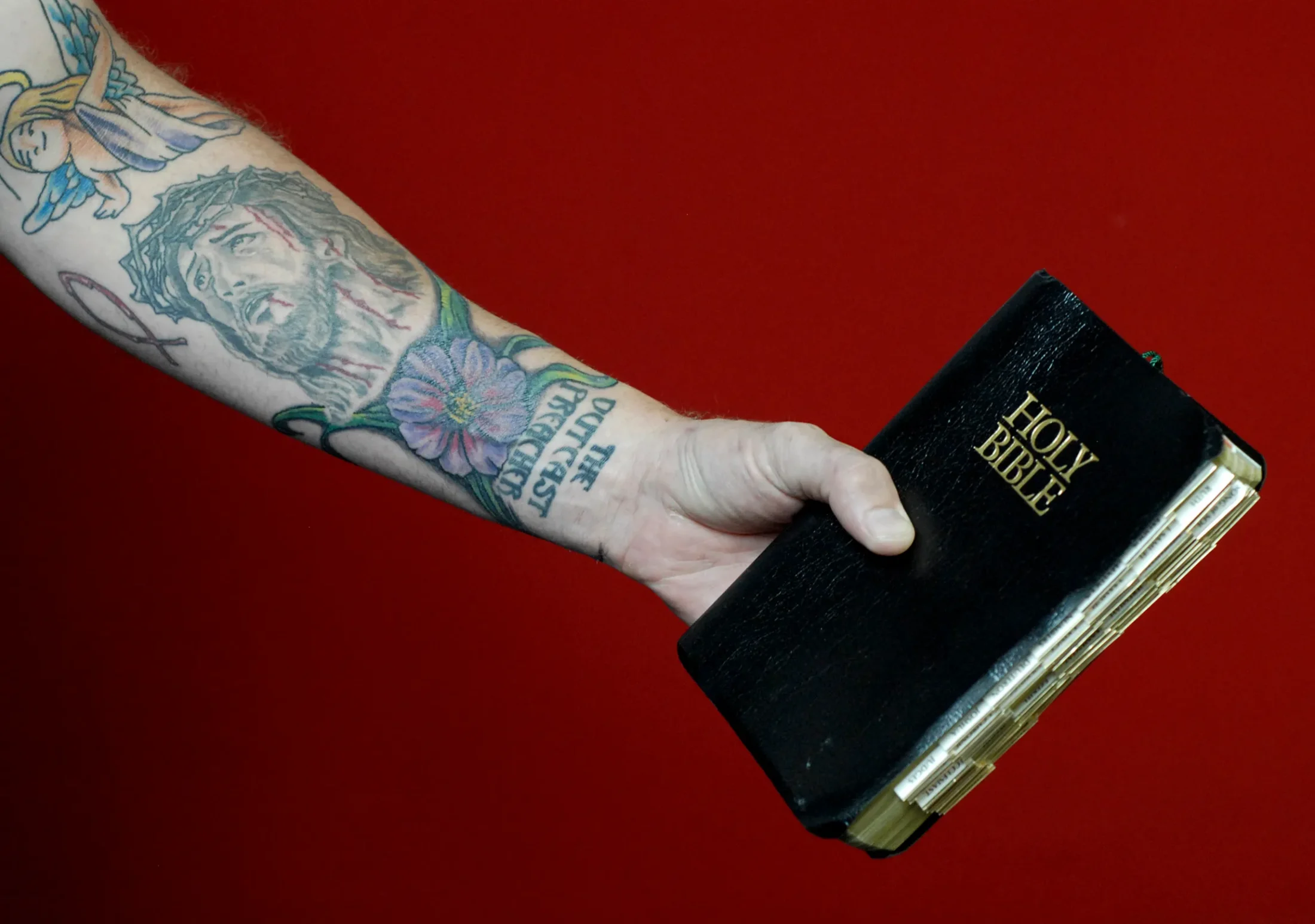Tattoos, as an expressive art form, have perennially symbolized individualism, cultural lineage, and personal narratives. Nevertheless, the reception of tattoos within religious circles, notably the Christian Church, has endured protracted debates and discord.
Historically, tattoos were entwined with notions of rebellion, non-conformity, and a perceived indifference to religious principles. In recent times, a discernible shift within the Church’s disposition toward tattoos has materialized. This evolving acceptance mirrors broader societal transformations and confronts deeply ingrained stereotypes linked to bodily adornment.
If you’re now wondering what does bible say about tattoos, in this article, we will explore the historical perspectives, changing attitudes, and the ongoing dialogue within the Church regarding tattoos.
Historical Perspectives on Tattoos in the Church

The negative perception of tattoos within the Christian Church has deep historical roots. Many associate this viewpoint with passages from the Old Testament, such as Leviticus 19:28, which states, “Do not cut your bodies for the dead, and do not mark your skin with tattoos. I am the Lord.” Interpretations of this scripture led to the belief that tattooing was a violation of God’s commandments.
In addition to religious texts, societal norms also played a role in shaping the Church’s stance on tattoos. Historically, tattoos were associated with marginalized groups, such as sailors, prisoners, and rebels. As an institution rooted in tradition, the Church tended to resist embracing symbols perceived as outside the mainstream or associated with a rebellious lifestyle.
Changing Attitudes in Modern Times
Over recent decades, a seismic cultural shift toward mainstream acceptance of body art has unfolded. As societal paradigms metamorphosed, so did ecclesiastical perspectives. Congregations found themselves grappling with the dichotomy of perceiving tattoos as sinful transgressions or valid modes of self-expression.
Driving this paradigm shift is the Church’s acknowledgment of evolving cultural norms. As tattoos gained prevalence and societal approval, ecclesiastical leaders embarked on reassessing their stance. Theological scholars and pastors initiated dialogues on the crux of Christian teachings and the relevance of ancient prohibitions in a modern context.
Many argue that interpreting biblical verses in a contemporary light is essential. The understanding of Leviticus 19:28, for instance, has been revisited by theologians who argue that the prohibition against marking the skin should be understood within the context of pagan rituals and mourning practices of that time. They emphasize the importance of considering historical and cultural context when interpreting scripture.
Furthermore, the Church has come to recognize the diversity within its congregations. Congregations with tattoos are increasingly common, and church leaders acknowledge the need for inclusivity. Rather than focusing on external appearances, there is a growing emphasis on the internal qualities that define a person’s character and faith.
Theological Considerations

Theological discussions surrounding tattoos within the Church have expanded beyond a simple interpretation of biblical verses. Theologians are exploring broader themes related to identity, redemption, and the transformative power of faith.
Some argue that tattoos can serve as visible testimonies of personal transformation and spiritual journeys. The act of getting a tattoo, in this perspective, becomes a form of worship and a way to memorialize significant moments in one’s faith walk. Tattoos, for these individuals, symbolize a commitment to God and a tangible expression of their relationship with the divine.
On the other hand, some theological concerns persist within certain denominations. Questions about vanity, the body as a temple, and the potential for tattoos to become stumbling blocks for others are raised. These concerns reflect the ongoing tension between traditional interpretations of scripture and the evolving cultural landscape.
How Tattoos Can Be Aligned with Christian Values

Despite the historical stigma enveloping tattoos, avenues exist wherein they align with Christian values. Tattoos can serve as expressions of faith and devotion to God, reminders of cherished values and life milestones, and wellsprings of strength and solace for those confronting life’s tribulations.
Addressing Misconceptions About Tattoos
One of the biggest challenges in promoting greater acceptance of tattoos in the church is addressing the misconceptions that exist about them. Many Christians mistakenly believe that tattoos are inherently sinful or that they indicate a lack of respect for the body. It is important to educate Christians about the history and cultural significance of tattoos, as well as the many ways in which they can be used to express faith and Christian values.
The Positive Impact of Tattoo Acceptance in Churches
There are several positive benefits to accepting tattoos in the church.
- Tattoos can help create a more welcoming and inclusive environment for people with tattoos. It can be especially important for young people who may feel alienated from the church due to their tattoos.
- Accepting tattoos can help to break down cultural barriers and encourage greater understanding between different generations and cultures within the church. This can lead to a stronger and more vibrant Christian community overall.
- Accepting tattoos can also help to promote a more holistic understanding of faith. By recognizing that tattoos can be a legitimate form of self-expression and a way of connecting with God, the church can move away from a rigid and legalistic view of faith and embrace a more open and inclusive approach.
Conclusion

The evolving acceptance of tattoos within the Christian Church reflects broader societal changes and challenges long-standing stereotypes associated with body art. While historical perspectives rooted in scripture and tradition have shaped the Church’s stance on tattoos, contemporary attitudes are transforming.
Theological discussions are expanding to encompass themes of identity, redemption, and the transformative power of faith, providing a more nuanced understanding of the relationship between tattoos and Christianity. Churches that actively embrace the changing landscape of body art are creating spaces of inclusivity and acceptance, acknowledging that external appearances should not be a barrier to one’s spiritual journey.
As the Church continues to navigate these shifts in perspective, it is essential to foster open dialogues that bridge generational and cultural gaps. Ultimately, the journey toward acceptance is a testament to the Church’s ability to adapt to the evolving needs of its congregants while upholding its core values of love, grace, and acceptance.









